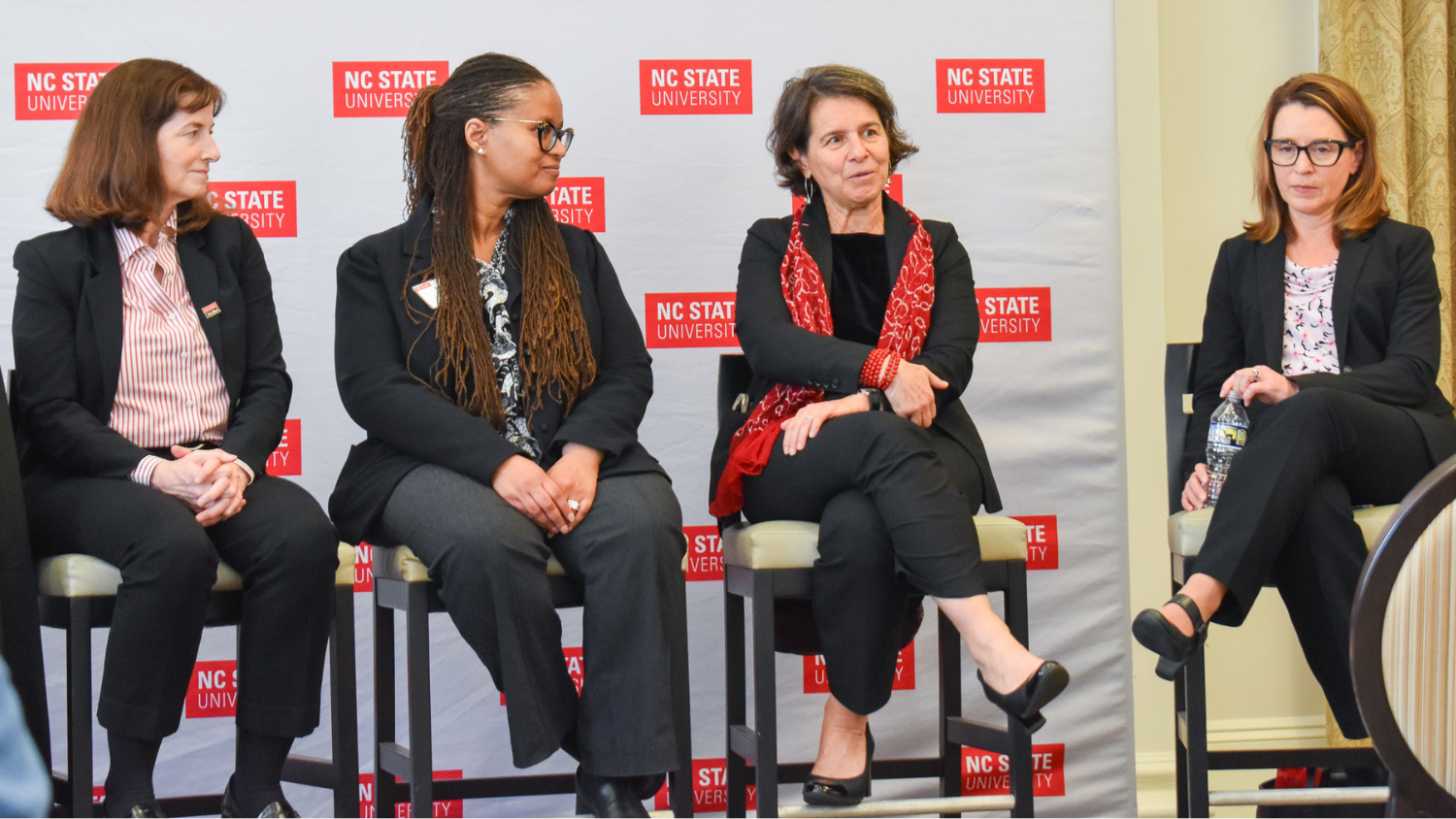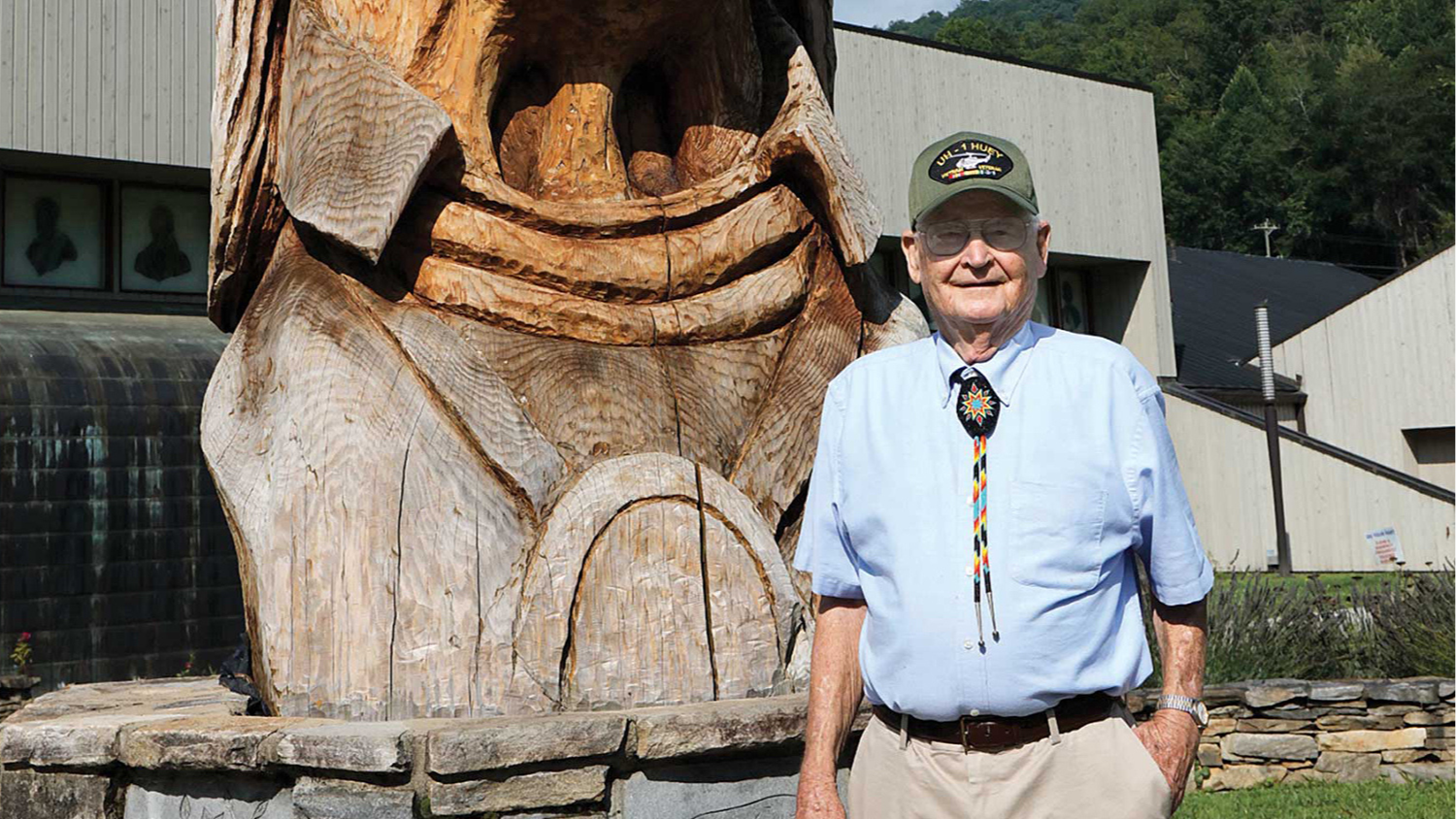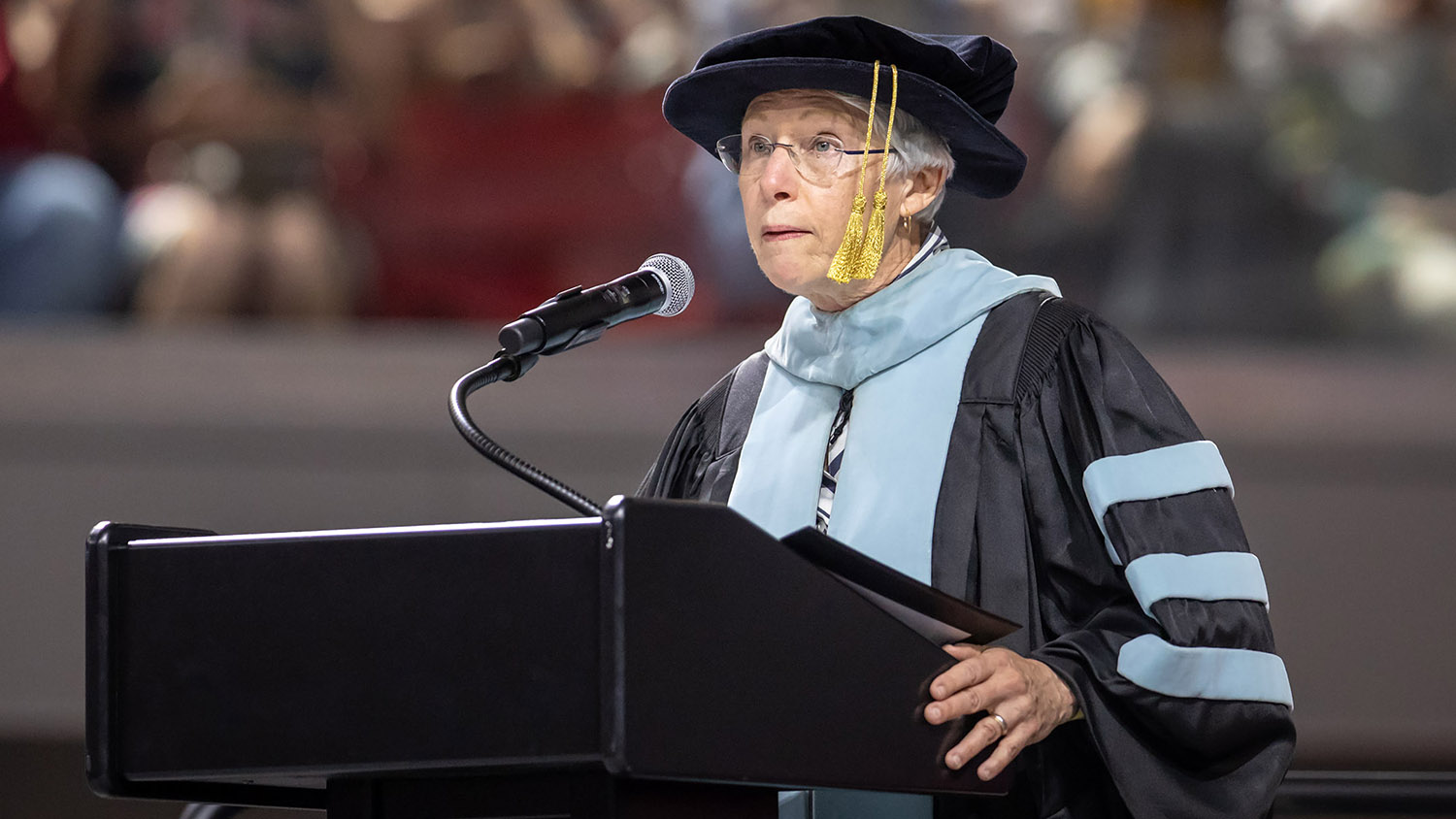Jessica DeCuir-Gunby on her Highly Impactful, Often Cited Research: ‘I Thought it Was Really Great that We Were Able to Provide a Tool for So Many People’

When Jessica DeCuir-Gunby, Ph.D., professor of educational psychology and head of the Department of Teacher Education and Learning Sciences at the NC State College of Education, was a graduate student, many suggested to her that studying Black students’ experiences with race and racism in schools would be difficult.
Now, DeCuir-Gunby is a highly renowned scholar whose work regarding Critical Race Theory, race and racial identity development has appeared in top-tier journals and has cumulatively been cited thousands of times.
Incorporating issues of race, equity and inclusion is not only an important facet of DeCuir-Gunby’s research, but of the courses she teaches. She often highlights these issues by drawing on examples from both her research and her personal experiences of growing up and attending school as an African American girl in Louisiana.
“I talk about growing up in a low socioeconomic status family and I talk about how I grew up by the Exxon refinery when I talk about environmental racism, what it’s like to grow up in that kind of environment and how it impacts your whole life,” she said. “I also share experiences with being Black in graduate school and some of the things I encountered and the things my colleagues encountered and how we dealt with them.”
[spotlight-box label=”” img=”” heading=”Learn more about the NC State College of Education’s Educational Psychology Program” cta=”” url=””]
Faculty at the NC State College of Education are transforming the field of educational psychology through unique conceptual and methodological approaches to the study of race and culture, with focuses on school climate, issues related to student engagement and motivation and cross-disciplinary applications of the work beyond educational psychology.
The NC State College of Education offers both a Master of Science or Master of Education in educational psychology as well as a Ph.D. in Teacher Education and Learning Sciences in the educational psychology program area of study.
Learn more about a master’s degree in education psychology
Learn more about a Ph.D. in educational psychology
[/spotlight-box]
Having faced obstacles pursuing her course of research as a doctoral student, DeCuir-Gunby shares the story of how she could not find a public school that would allow her to conduct her dissertation research on the experiences of African American students and the ways in which schooling impacted their racial identity. After months of trying, she ultimately found a private school that was willing to let her in, but the different environment forced her to shift her research questions to consider the influence of socioeconomic status.
She shares the story because she wants her graduate students to understand that research may not always take the path you wanted or expected, but the results can still be impactful and interesting.
In fact, one of DeCuir-Gunby’s most cited publications was something that she never initially expected to publish when working on the Nurturing Mathematics Dreamkeepers project.
Through her work as a co-principal investigator on the project, which was designed to promote K-2 teachers’ professional development through the use of culturally relevant pedagogy to promote students’ conceptual learning of mathematics, DeCuir-Gunby and the project team needed to analyze large amounts of interview data.
They struggled to find a codebook that would help them to analyze the interviews, so they opted to create their own. They then decided to publish a paper — Developing and Using a Codebook for the Analysis of Interview Data: An Example from a Professional Development Research Project — detailing the creation of this codebook, which has been cited more than 1,000 times since being published in 2011.
“It amazed me to see that we weren’t the only ones who were in need of a really good how-to piece on how to create a codebook and it just reminds me that there is a need for a lot of good how-to pieces on methods in general,” DeCuir-Gunby said. “I thought it was really great that we were able to provide a tool for so many people and to be able to provide assistance with their research.”
DeCuir-Gunby is also the author of “So When It Comes Out, They Aren’t That Surprised That It Is There”: Using Critical Race Theory as a Tool of Analysis of Race and Racism in Education,” which was published in Education Researcher and has been cited more than 1,500 times since 2004 and the co-author of Developing a Mixed Methods Proposal: A Practical Guide for Beginning Researchers, which was one of the best-selling volumes in the mixed methods research book series in the years following its release.
Her 2014 article, “Researching Race within Education Psychology Contexts,” has also received renewed attention in light of recent calls for an end to racial injustice, with special sessions at the American Educational Research Association and discussions at the American Psychological Association focused on the piece, DeCuir-Gunby said. In addition, special issues in two top-tier journals — Contemporary Educational Psychology’s Special Issue on Race-Reimaging Educational Psychology Research: Investigating Constructs through the Lens of Race and Culture and Educational Psychologist’s Special Issue: Critical Reflections and Future Directions in the Study of Race, Ethnicity, and Motivation — were based upon the 2014 article.
Her experience as a highly regarded researcher is something that she believes will be valuable in her role as the head of the College of Education’s Department of Teacher Education and Learning Sciences, a position she began in August 2020. In addition, she hopes that students, particularly students of color, might be inspired when they see a Black woman as a departmental leader.
Whitney McCoy ‘20PHD, now a research associate at the University of Virginia who studies identity development among African American students as it relates to racialization and intersectionality, said having DeCuir-Gunby as a mentor during her time at the College of Education played an important role in her success as a Black woman in educational psychology.
She specifically cited DeCuir-Gunby’s ability to lead classroom discussions around uncomfortable, yet important topics, as something she hopes to incorporate into her future courses to encourage students to make positive changes in education and society.
“I had never seen a professor lead such a tough, fruitful conversation with people from varying backgrounds before and without students leaving the classroom upset,” McCoy said. “Dr. DeCuir-Gunby has been the best mentor I could ask for. She has helped me cope with impostor syndrome, as I am the first person in my family to earn a Ph.D., and most importantly I feel like I could talk to her about anything. Seeing another Black woman in the field that is successful lets me know that anything is possible for me.”
[spotlight-box label=”” img=”” align=’left’ heading=”Learn More about Jessica DeCuir-Gunby’s Work Surrounding Race-related Issues” cta=”” url=””]
Jessica DeCuir-Gunby has conducted impactful and highly cited research during her 17 years with the College of Education. Take a look at some of her past work on Critical Race Theory below:
- Using Critical Race Theory Research to Inform and Improve Instruction
- Five Questions With . . . Jessica DeCuir-Gunby on Race and Education
[/spotlight-box]
Going forward, DeCuir-Gunby will be a co-principal investigator on a Spencer Foundation-funded project that will examine the experiences of Black mothers who were classified as essential workers during the COVID-19 pandemic and the ways in which those mothers are meeting the educational needs of their children during remote learning.
The project will document the effects of the pandemic on mothers’ attempts to facilitate distance learning and their perceptions of school districts’ efforts to create equitable distance education across racially and socially diverse communities.
The goal of the project is to generate useful information that will provide guidance for K-12 administrators, educators, community associations and researchers to consider as districts adopt various distance learning strategies and set new student performance expectations in the 2020-2021 academic year.
“I think it’s really important because so many parents are just struggling to support their children during this period of remote learning, but then you have so many essential workers on the front lines every day working,” DeCuir-Gunby said. “African Americans have been hit hard by the pandemic, so they’re dealing with having to go to work, having to do remote learning and being more susceptible to COVID-19. We wanted to better understand their experiences, particularly with how they’re supporting their kids and what messages they’re getting from their kids’ schools.”
- Categories:


